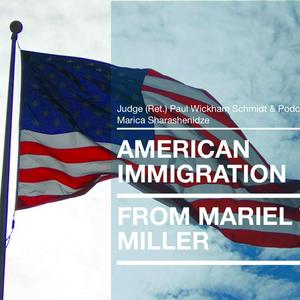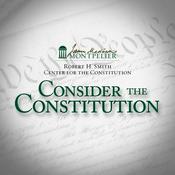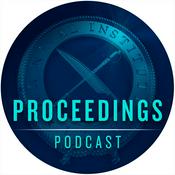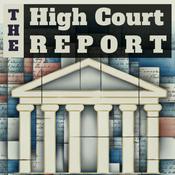American Immigration from Mariel to Miller

7 episodes

Concluding Remarks
4/23/2020 | 1h 6 mins.
So, what now? Will the intentional cruelty, “Dred Scottification,” false narratives, and demonization of “the other,” particularly women, children, and people of color, by presidential advisor Stephen Miller and his White Nationalists become the “future face” of America? Or, will “Our Better Angels” help us reclaim the vision of America as the “Shining City on the Hill,” welcoming immigrants and protecting refugees, in good times and bad, while “leading by example” toward a more just and equal world?

The Mariel Boatlift Crisis
4/22/2020 | 48 mins.
The Refugee Act of 1980 feels like a huge success...for a short amount of time. The first test of the act comes when Fidel Castro opens Cuba's borders (and Cuba's prisons) and hundreds of refugees arrive on Florida shores. The Mariel Boatlift Crisis forced the U.S. government to realize that not all asylum processing can happen abroad. Unfortunately, it also left the public with the impression that "Open arms and open hearts" leads only to crisis.

The Refugee Act of 1980
4/22/2020 | 25 mins.
The year is 1980 and the war in Vietnam has displaced hundreds and thousands of people. The system of presidential parole doesn't seem like it can handle the growing global refugee crisis. What is the answer to this ballooning need? Process most refugees abroad to streamline their entrance to the U.S. Codify asylum in the U.S. in legislation that puts human rights first. Increase prestige, improve overall government coordination, provide a permanent source of funding, and institutionalize refugee resettlement programs and assimilation. Have Ted Kennedy be the face of the effort. For once, things are actually working out for humanity.

The 1990s BIA
4/22/2020 | 54 mins.
In the 1990s, Judge Schmidt was BIA Chairman Schmidt. With the support of then Attorney General Janel Reno, he aspired to “open up” appellate judgeships to all immigration experts, and to lead the BIA to much-needed progressive steps towards humane asylum law, better scholarship, improved public service, transparency, and streamlined efficiency to reduce the backlog. However, progress seemed to stall at several points and certain types of behavior tended to be rewarded. The Board sits at the intersection between a court and an agency within the administration, which means its hurdles come both from structural issues with the U.S. Justice System and with entrenched government bureaucracy.

Creating EOIR
4/22/2020 | 47 mins.
In the 1980s, critics claimed that the federal agency in charge of immigration enforcement, the “Legacy” Immigration and Naturalization Service (“INS”), could not process quasi-judicial cases in a fair and just manner due to limited autonomy, non-existent technology, insufficient resources, haphazard management, poor judicial selection processes, and backlogs. The solution? Create a sub-agency of the Department of Justice (“DOJ”) just for the immigration courts, focused on “due process with efficiency” and organizationally separate from the agency charged with immigration enforcement. The Executive Office of Immigration Review (“EOIR”) was an ambitious and noble endeavor, meant to be an independent court system operating inside of a Federal Cabinet agency. Spoiler: despite significant initial progress it did not work out that way in the long run.
More Government podcasts
Trending Government podcasts
About American Immigration from Mariel to Miller
Listen to American Immigration from Mariel to Miller, Strict Scrutiny and many other podcasts from around the world with the radio.net app

Get the free radio.net app
- Stations and podcasts to bookmark
- Stream via Wi-Fi or Bluetooth
- Supports Carplay & Android Auto
- Many other app features
Get the free radio.net app
- Stations and podcasts to bookmark
- Stream via Wi-Fi or Bluetooth
- Supports Carplay & Android Auto
- Many other app features


American Immigration from Mariel to Miller
download the app,
start listening.







































